|
Imagine four graduate students passionate about ministry and ready for new experiences. We pulled up to a ranch house in New Hampshire in August 2012 and unloaded our packed cars. Our next two years were devoted to serving in local parishes while earning our degrees in theology through the Echo Graduate Service Program. Our first community prayer took place on the Feast of St. Bernard of Clairvaux, whose feast day we celebrate on Thursday. The translation for “Clairvaux” is “Valley of Light”; we didn’t know a great deal about Bernard, but the theme of light clicked. We were accumulating candles as welcome gifts from our parishes, so of course, it was a sign! We pieced together his biography and reflected on his dynamic writings. We asked St. Bernard to be the patron of our house and bless our time together. St. Bernard was a monk who lived in 11th century France and became a Doctor of the Church. From an early age, he was considered devout and well-educated. The third of seven children, Bernard took a particular interest in poetry and had a special devotion to Mary. He notably authored the Memorare prayer. He became a respected abbot of what are now the Cistercians in the Diocese of Langres. Bernard is credited with naming the monastery he began Claire Vallée, in an area originally named Vallée d'Absinthe, or Valley of Bitterness. He was known for his influence among clergy and political leaders. St. Bernard died in 1153 and was canonized in 1174. Now imagine a young family. My husband, one-year-old son, and I prepared to “hunker down” for quarantine in March 2020 in Indiana. Five months later, we are still amid a global pandemic that can feel overwhelming, oppressive, disheartening, and confusing all at once. The virus has also revealed some of the most beautiful elements of community and compassion. While I can’t compare the virus to the challenges Bernard faced as a young adult starting a monastery with a “band of monks,” I appreciate how he held fast to the deeper purpose of Benedictine life. He cultivated habits of work, leisure, and rest while counseling his fellow monks, clergy, and politicians. COVID-19 forced me to recognize how I create space to listen and be with God both inside and outside my home, much like Bernard’s contemplative life. Eight years ago, the patron of candlemakers introduced what it means to practice a type of “spirituality of home” where home is not only a place for living, but also one of brightness, hope, and intentionality. I can see hope daily in our little boy, doing the hokey pokey many times over, reading books, and playing chase. We intentionally set up a prayer table in our living room where we say morning and evening prayers as a family and filled walls with icons and pictures to remember who it is we say thank you to! These habits took time, but they have been a source of security in such a time of uncertainty. I’m grateful to St. Bernard for bringing light to all the “unknowns” in our little ranch house in New England and my first home in the Midwest. He is a guide who shows us how to cultivate habits that lead to a deeper relationship with God, our true home! Reflection Questions: How might we practice a “spirituality of home”? Where is the light in our individual “valleys of bitterness,” i.e. isolation, loss, anxiety, or despair? Inspiration for this article came from the book Theology of Home. If you enjoyed this post, we invite you to read Creating an Inner Monastery During the Coronavirus Pandemic.
0 Comments
This year seems like a year of baby announcements for me! Just as I have prepared for the parade of invitations and happy save-the-dates for graduations and weddings, I’ve been preparing in my own way for the arrivals of friends’, parishioners’, and family’s little ones. With the arrival of spring, so too comes the arrival of brand new family members. At Mass recently, the choir began singing “What a Beautiful Name” during the Eucharistic procession. I couldn’t help but picture the new names and faces that would fill stories from now on. With each birth announcement came the first, middle, and last name along with weight, length, and time of birth. These surely were moments that changed so many lives forever! I could hear the parents and families singing this song for the new baby boy or girl. As I pictured the new names and faces, I prayed using the name that changed humanity–Jesus. Each verse of “What a Beautiful Name” builds upon the last. Jesus’ name is beautiful, wonderful, powerful. The melody and harmony invite you into a transformative reality. Jesus–who is the King, Savior, Son of God, Prince of Peace–knows your name and is present to you in the Eucharist (CCC 432). You didn't want heaven without us So Jesus, You brought heaven down Throughout the Old and New Testaments, we learn about the significance of names and the process of naming. Some names change as different Biblical figures embrace a new mission or vocation: like Abram, Jacob, and Simon. Listening to this song led me to reflect on those figures in Scripture and on Jesus’ Paschal Mystery in light of the birth announcements. His is the only name through which humanity is saved—the name “above every name.” I hope to witness the love of Christ in these babies and in their unique names that are so meaningful. These names are written on the palms of His hand and show God’s unconditional love for His people and the love for His Son, Jesus. Yours is the Kingdom, Yours is the glory Yours is the Name, above all names This spring and Easter Season calls me to slow down and pray with the name of Jesus. I pray in thanksgiving for new life and new names. I pray for the hearts of these little ones and hope that they come to know and witness the beauty, wonder, and power in Jesus’ name. Question for Reflection: Try praying the simple prayer of Jesus’ name. Think of the history and significance of names in your life, the lives of family members, the saints, and scripture. How have each of these names influenced your faith? In today’s Gospel, Jesus turns to Peter saying, “Blessed are you, Simon son of Jonah. For flesh and blood has not revealed this to you, but my heavenly Father. And so I say to you, you are Peter, and upon this rock I will build my Church…” On the Sea of Galilee, Peter is marked as the shepherd of the Church. He began as Simon son of Jonah, an unlikely character, a fisherman. Now he will be the leader of the followers of Christ. As the Catechism of the Catholic Church states, “[Jesus] gave him the keys of his Church and instituted him shepherd of the whole flock.” We celebrate this sublime moment today on the Feast of the Chair of St. Peter, praying in a special way for the pope—St. Peter’s successor—and also all clergy, bishops, priests, and deacons who continue to shepherd Christ’s flock. Why celebrate a chair? The physical Chair of Peter is fixed in the Basilica of St. Peter in Rome, but it is a physical symbol that communicates a spiritual reality. Pope Emeritus Benedict gave a concise homily on its significance in 2006, explaining that each bishop sat on a cathedra (his established seat) when entrusted with a specific church. It was not only the place Peter would have sat as bishop, but also where he would have taught, preached, and carried out his priestly tasks. Peter once held a physical space, much like a solitary shepherd who stands with his staff and provides for the sheep he serves. And over time, the chair has been broken, worn, and recreated as a symbol of the apostle’s works. As Peter went from Simon to the rock, petra, the chair became cathedra, the bishop’s seat. Pope Benedict XVI continued in his homily, “the Chair of the Bishop of Rome represents not only his service to the Roman community but also his mission as guide of the entire People of God.” The Chair of St. Peter, therefore, points to the Eternal Good Shepherd: Christ himself. Jesus instituted the papacy knowing of Peter and his future successors’ humanity. Peter was passionate, dramatic, foolish and courageous. He both loved and held a deep respect for Jesus, but would later betray his friend during his Passion. Yet Peter was also the first of the apostles to profess: “You are the Christ, the Son of the living God” (Matthew 16:16). It is for this reason that Jesus replied to him, “you are Peter, and upon this rock I will build my Church.” God works within the brokenness of our humanity and invites us to sanctity, just as he did with Peter. Peter went from a man who betrayed Christ to a martyr who died for him. As the first pope, he became a great leader and model despite his human imperfection. In addition to the humanity of Peter, the Chair also reminds us of the call to holy leadership and is a sign of the grace given by God to those whom he calls, especially in the Sacrament of Holy Orders. The Catechism states, “Just as ‘by the Lord's institution, St. Peter and the rest of the apostles constitute a single apostolic college, so in like fashion the Roman Pontiff, Peter's successor, and the bishops, the successors of the apostles, are related with and united to one another." On this Feast, let us remember to pray for our pope and for all our church leaders! How can celebrating the Feast of the Chair of St. Peter impact our own lives? Think of the physical and spiritual chairs that you sit in today and each day. Whether in an office, at home, in church, or outside, a chair enables us to perform our daily functions. In the same way, we hold offices in our lives. From being a young professional, mother or father, administrator, businesswoman or postman, we hold a place in this world as Christ’s followers. What chair is Christ asking you to fill in his Church? In his homily on this Feast Day in 2016, Pope Francis challenged the Curia and all the Church to make Peter’s words their own. He said, “May our thought and our gaze be fixed on Jesus Christ, beginning and end of every action of the Church…Christ is the rock, on whose foundation Peter was also built…He is the ‘rock’ on which we must build.” As we celebrate the Feast of the Chair of St. Peter, let us ask for St. Peter’s intercession as we strive to profess with faith, “You are the Christ, the Son of the living God.” Reflection Questions: What are the “holy offices” you hold in your own life? How do they reflect the great call of St. Peter as rock of the Church? Take time today to pray a prayer for priests in honor of St. Peter. Go, therefore, and make disciples of all nations, baptizing them in the name of the Father, and of the Son, and of the holy Spirit, teaching them to observe all that I have commanded you. –Matthew 28:19 How do you think the “mission statement posted on the wall” compares to the lived experience of the community following it? A dear friend of mine asked me this question after I shared about my long and tiring week. I was challenged by how people I was working with were approaching a situation. A mission statement that is written or spoken about, and the mission lived among a group, are expected to be the same. Yet I was conflicted by a recent experience of the opposite–my community was following something else. The Catholic Church is echoing mission-based language more and more in recent years. Phrases like “Go, therefore, and make disciples of all nations,” or “missionary discipleship” based on the call of Pope Francis in Evangelii Gaudium permeate our ministries and parishes. This is not something new; we have always been called to live out our baptismal promises and evangelize all nations. Now our approaches are being adapted to accommodate an ever-changing secular culture. As Matthew’s Gospel proclaims, we are “co-missioned,” working with the Father, Son, and Holy Spirit in sharing the Christian identity. From the personal to the global level, every Christian is invited, asked, urged, encouraged, and challenged to encounter someone who does not know about Christ’s life, death, and Resurrection. This Christian message had been overlooked in my recent experience within my mission-based community. What I valued in “the mission statement on the wall” was important in writing, words, and actions, but not everyone who I engaged with operated with the same spirit in mind. It struck me how different the culture was from what it promoted. Like the renewed movement in the Church for a new evangelization, I could see the need to “re-member” the reason and context behind our mission. Since then, I’ve taken time to reflect on how I engage with others and the communities I participate in. Am I living out the mission Christ called me to, or do I follow my own way? Pope St. John Paul II wrote in Redemptoris Missio about the trend in the modern world to function based on personal perspective without considering God, saying, “There is a tendency to reduce man to his horizontal dimension alone. But without an openness to the Absolute, what does man become? The answer to this question is found in the experience of every individual, but it is also written in the history of humanity with the blood shed in the name of ideologies, or by political regimes which have sought to build a ‘new humanity’ without God” (RM 1, 8). This is a very real human temptation that I discovered within my own community. I could see how individual preferences were valued over guidance and openness to the Spirit. The formed mission of the community was posted but not followed, spoken about but not acted upon. We had forgotten the story behind the mission. As we enter a new liturgical year, much like a new calendar year, there is an opportunity to reflect on the purpose behind our actions within our ministries, organizations, parishes, families, and communities. We can sit with God and ask challenging questions while holding ourselves accountable to the answers. My friend’s question led me to a collective examination of conscience that can take place right alongside my personal examination of conscience. Why are we here? What is it that we’re being asked to do? How do we share our gifts with one another and those we serve? What is the goal of our work? Who or what do we serve by following this mission? Am I and are we following these goals to the best of our ability? If ever there is an area of weakness, we can work to remedy it within the community. Followers of Jesus prepare their hearts to accept “The Great Commission” by participating in the works of mercy, the sacraments, prayer, liturgy, and fellowship. I am going to use this special time of Advent to recommit myself to my personal mission and communal mission. The ultimate “mission statement on the wall” is the one God has written on our hearts in baptism, “to go and make disciples,” through our witness and evangelization. In humility I must continue to ask myself, am I living this mission? Reflection Questions: At the beginning of Advent, take time to consider the communities you are a part of and their various mission statements. How do you contribute? How can you grow in faith and dedication to the ultimate mission of Christ and the Church? Click here to visit our Living As Missionary Disciples Resource Page. Now you are Christ’s body, and individually parts of it. –1 Corinthians 12:27 I commute to work every day by train through Chicago’s “loop.” It’s the perfect place for people-watching. Recently, I was on a busy sidewalk when a woman who looked rather tired and disheveled pushed a stroller near the crowd with her child. Behind me were two very elegantly dressed women in a hurry. The woman with the stroller asked the passing crowd, “Can you spare some change for our next meal?” It’s a question that I’ve heard too often downtown. I felt a pang of sadness and guilt. Often, I am unsure how to respond. The women behind me continued on past her and began commenting: “What a horrible mother”; “Of course I’m not going to help her out. Why would I want to give her my money?” Those comments hurt even more than seeing this poor mother and child suffer. In the first letter to the Corinthians, St. Paul writes, “As a body is one though it has many parts, and all the parts of the body, though many, are one body, so also Christ. . . . If [one] part suffers, all the parts suffer with it; if one part is honored, all the parts share its joy.” The mother and her baby, the women behind me, and all those who are a part of my community of friends and family are of one body. As stated in Lumen Gentium, “By communicating His Spirit, Christ made His brothers, called together from all nations, mystically the components of His own Body. In that Body the life of Christ is poured into the believers who, through the sacraments, are united in a hidden and real way to Christ who suffered and was glorified.” We live as one with Christ and with one another even amidst the poverty, injustice, and messiness we experience. This letter from Paul to the early Church deepens their understanding of the Body of Christ and its physical makeup. Each person has a function within it which works alongside the other members and promotes the common good. As the Catechism of the Catholic Church notes, “The unity of the Mystical Body produces and stimulates charity among the faithful.” I often fall into the temptation of removing myself from a group who seems holier than me, those who are more involved in their community or are outspoken in ways that I’m not. I even tend to exclude myself from the community of pedestrians walking down the sidewalk. I forget that we make up the Body of Christ and that if others suffer, I suffer. If others rejoice, I rejoice. I also share a part of myself with each of them. One of my mentors once said, “Our goal is always to connect. Even if it’s uncomfortable, we are made for relationship.” As a Christian, I am called to notice those in the community around me and to connect with them. Mystici Corporis Christi, the encyclical from Pius XII, also outlines the meaning of being a part of the Mystical Body of Christ. “Each member of the Church, of the Mystical Body of Christ, if authentic, is integrally bonded in soul, and hopefully in heart, through the Incarnation, by the Spirit, with Jesus, Son of God, and son of Mary, divine and human,” wrote Msgr. Owen F. Campion. We are bonded in soul and heart because of Christ’s physical and spiritual sacrifice as the Son of God. We become whole in him and in relation to others. As members of the Church, we are called to be a family who loves and cares for others, even those outside of our communities. In all circumstances, the Body of Christ leads me to a holier life. When I am doubtful or uncertain, my faith community allows me to grow. When I’m overwhelmed, others will kindle the fire of faith within me. I fully experience joy when I experience it with others and share the Good News and the love of Jesus. I may do this differently from a trained hand who provides, or a speaker with a gifted tongue, but I’m using my gifts as a member of the Body of Christ. We are called to take part of this community through our unique identity with authenticity. I paused that day on my commute because of this mystical experience of community. I witnessed the pain of the poor mother and child on the Chicago sidewalk, and the harshness of the response of the two women who were walking near me. I became more aware of this truth in the wounds and challenging emotions I experienced. I feel pain because I am connected to all people in some way. Conversely, I can feel joy if I make small choices to build up the Body of Christ. St. Paul outlines this for us, and we hear it in St. Teresa of Avila’s words, “Yours are the hands, yours are the feet, yours are the eyes, you are his body. Christ has no body now on earth but yours.” We must pay attention like Jesus would, and love our physical and mystical body. Questions for Reflection: What unique gifts can I share with others as a member of the Body of Christ? How can I become more aware of the communities I live in? When they had gone ashore, they saw a charcoal fire there, with fish on it, and bread. Jesus said to them, ‘Bring some of the fish that you have just caught . . . Come and have breakfast.’ –John 21: 9-10 Easter is a season of renewal, wonder, and awe. The light of Christ conquers darkness, and new life overcomes sin and death. Hope lives, as Fr. Frank wrote, and “We are called to see with the eyes of faith in Christ.” Excitement wells up in me around this time every year when the world is waking up – new blooms appear on trees and in gardens while the sunlight lasts longer each day. Even more exciting than this change in nature is the joy that comes from the Easter Vigil, when the Church welcomes new members and we renew our baptismal promises. As the earth awakens each spring, this liturgical season also invites us to wake up to Christ’s triumphant love. The Gospel readings following Easter Sunday and the Easter Octave are cherished stories and intimate encounters with Jesus. He appears to his disciples when their eyes are still bleary from what happened on the Cross. He has indeed risen as he said. They are called to see and to not be afraid, to touch his wounds, and to ask him questions. One such story occurs before Jesus asks Peter if he loves him. Jesus first directs the disciples to an overwhelming catch on the Sea of Tiberius after a long night of unsuccessful fishing. Their nets overflow. They do not recognize him at first until this moment. Then, John tells Peter and the others, “It is the Lord.” Peter impetuously jumps out to join Jesus while the others row ashore. Sitting at the charcoal fire with fish and bread, Jesus invites the fishermen to come and eat breakfast. I imagine this moment filled with wonder and awe. The disciples will now be “fishers of men,” following Christ’s example and listening to his voice. In the forty days after his Resurrection, Jesus prepares his disciples for their new life of faith and evangelization. Like a dear friend, he gives them advice, teaches them, and even cooks for them. The meal on the beach must have tasted wonderful! This scene is a gift to the senses, like the coming of springtime and the exuberance of the Easter Vigil. What would it be like to be one of the disciples on that beach at daybreak? The cool breeze and the smell of fire caught up in the air, the morning colors dancing in the sky from the sunrise, the feeling of contentment the disciples must have had after catching so many fish, their weariness from a long night, and the sound of Jesus’ voice giving gentle direction. What would it be like to recall all the times you sat with him, to remember the day of his death, and then be present with him and eat fish and bread? This moment on the beach is an intimate encounter that we are also called to experience after the events of Holy Week and throughout all of our lives. During this fifty-day season, I invite you to listen, to sit, talk, and eat with Jesus on the seashore. Reflection Question: What signs of Easter have you noticed springing up in your life since Holy Week? How will you share and enjoy them with Jesus? My Catholic grade school began everyday with students lining up in the gym for attendance and then filing out to class. One morning after Thanksgiving break, our usual routine was interrupted when the principal, a Sister of St. Joseph, came up to me.
She asked, “Would you like to be Mary for an Advent Mass?” I immediately blurted out an emphatic, “No!” The other fourth graders shot me shocked stares. It would have been a dream for many of my classmates to receive such an invitation, especially a personal one from the principal! And then, of course, they were astounded that I would dare to say no to the principal herself. “Are you sure?” she asked me again. “Well, umm, I just really don’t want to. I’m sorry,” I said. The disappointment spread across her face and I knew then that she was not expecting that answer either. An awkward pause came and went as teachers and students began marching to their rooms. Finally, I said, “Well, I mean, I guess I could do that for you.” The principal beamed and listed off a number of details, like who would be St. Joseph, and when we were to arrive to change into costume. I often think back to that encounter during Advent when I reflect on Mary’s “yes” and Joseph’s sacrifice. Why did I refuse to help with such certainty? It was out of character for my usual fourth grade self.. Maybe that day my stubborn will and insecurities showed their true colors! There is an irony to saying “no” to playing the part of Mary when her “yes” was prophesied by Isaiah and echoed in the message of the psalmists. The lives of St. Joseph, St. Paul, and the gospel writers were forever changed by that answer. Now, I’m grateful for changing my answer to yes for something simple. Like Mary, I received special graces to live out the big and small yeses to God in my adult life. The readings for this Fourth Sunday of Advent focus on the message of Emmanuel.They do a good job of showing how even in our wavering human nature, God is with us. Consider the gospel from this week, where a shocked St. Joseph allows God to turn his “no” to a “yes.” I like to imagine St. Joseph’s shock after hearing about Mary’s pregnancy. He responds to the news with a dignified “no,” hoping to protect both himself and his young fiancee, until an Angel shows him the workings of the Holy Spirit in his and Mary’s lives. His sacrifice and hiddenness guides us in family life, work, ministry, and sharing the the gospel message in a noisy world. His “yes” wavered and then seemed to move to a place of confidence and trust. “Joseph, son of David, do not be afraid to take Mary your wife into your home.” (Mt 1:20) What reassurance! God was with him as he transitioned to being the head of the Holy Family, he became the ultimate protector of holiness. After the Marian story from my fourth grade year to the touch points of this weekend’s Gospel the message of Emmanuel lives. We prepare for Christmas this week with the demands of a commercial culture, family time, the healing of relationships, and the stress of “keeping up”. God is with us, waiting as he did through Isaiah and St. Paul, and the call of St. Joseph. What will we say “yes” to this week? How will God be with us in our moments of “no.”? When your fear or pride brings the word “no” to your lips, remember that God is still with you. As we await our Lord this Advent remember that he too awaits us and our emphatic “yes”. May your final week of Advent be blessed! Sophie Lorenzo works in social media marketing for a Catholic publisher in Chicago. An alum of the Echo Program at the University of Notre Dame, she enjoys bridging her background in theology with online ministry. |
Details
Archives
July 2024
Categories
All
|
About |
Media |
© COPYRIGHT 2024 | ALL RIGHTS RESERVED

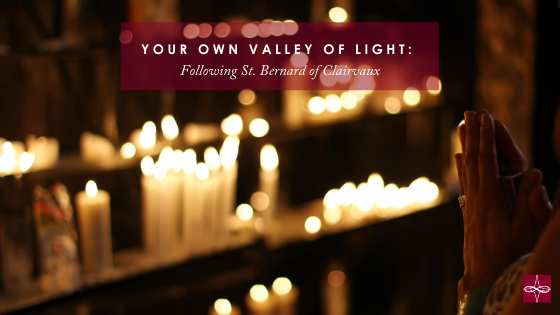

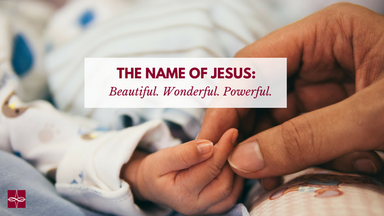

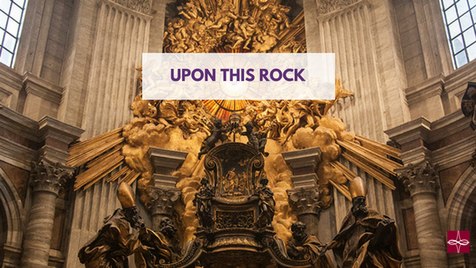

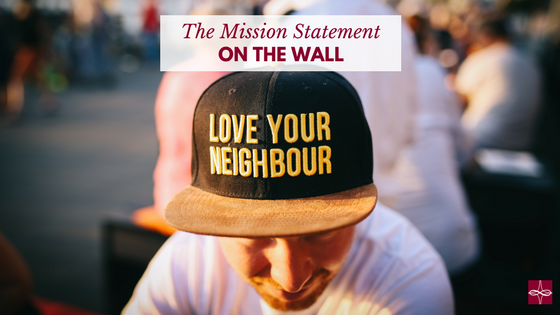

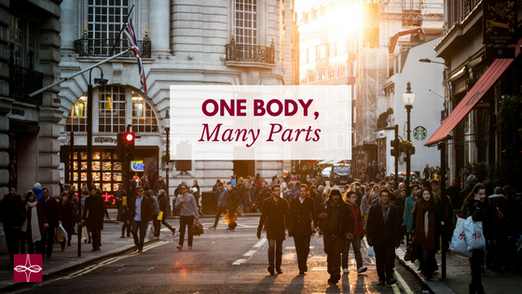

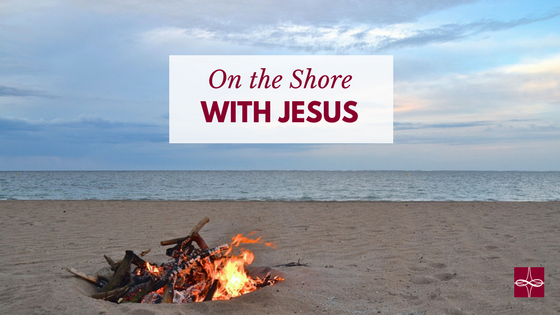

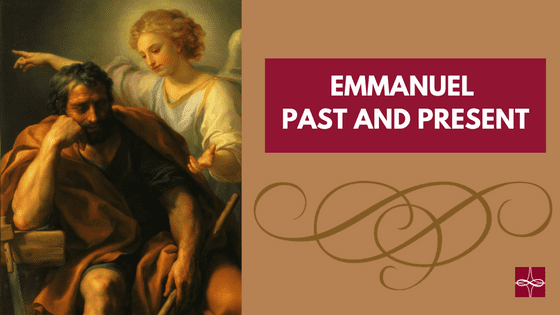
 RSS Feed
RSS Feed